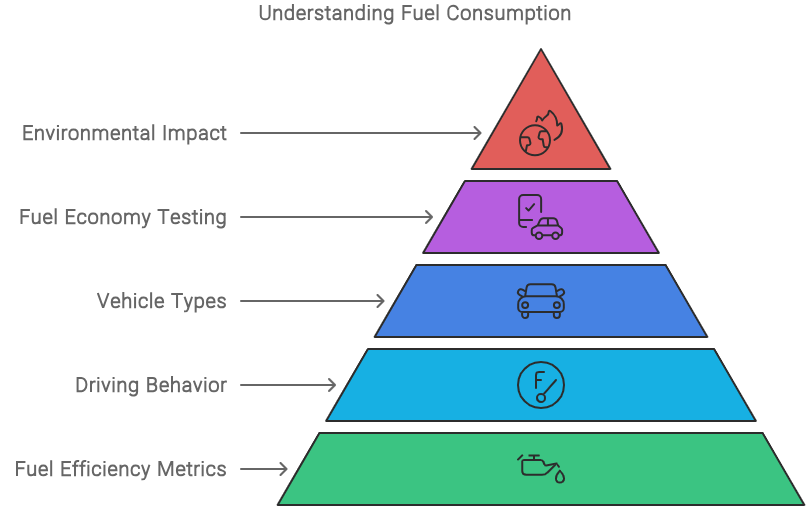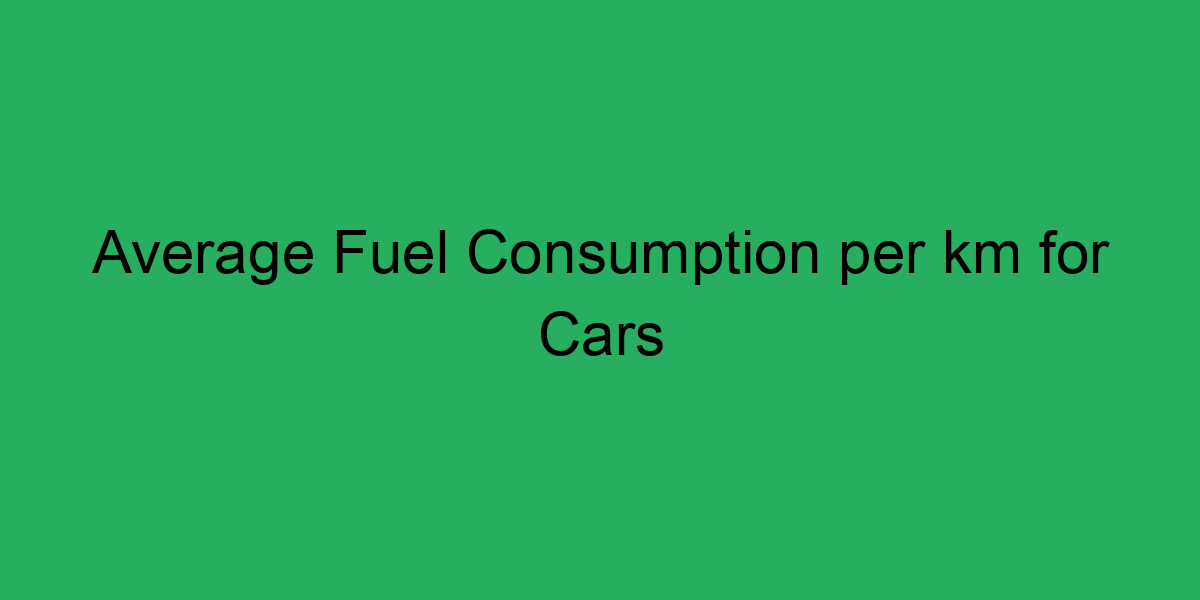Are you trying to figure out how much fuel your car really uses? Whether you’re buying a new vehicle or trying to optimize your current car’s efficiency, understanding fuel consumption is crucial for both your wallet and the environment.
📍 Quick Answer Box:
The average car consumes between 6-8 liters of fuel per 100 kilometers (about 30-40 MPG). However, consumption varies significantly based on:
- Vehicle type (sedans: 6-7 L/100km, SUVs: 8-10 L/100km)
- Driving conditions (city vs. highway)
- Maintenance status
- Driving habits
Contents
How is Fuel Consumption Measured?
Fuel consumption is typically measured in liters per 100 kilometers (L/100km) in most countries, while some regions use miles per gallon (MPG).
According to the International Energy Agency, global average fuel consumption has improved by approximately 1.5% annually over the past decade.
Average Consumption by Vehicle Type
| Vehicle Type | City (L/100km) | Highway (L/100km) |
|---|---|---|
| Compact Cars | 7.5 – 8.5 | 5.5 – 6.5 |
| Mid-size Sedans | 8.5 – 9.5 | 6.5 – 7.5 |
| SUVs | 10.5 – 12.5 | 8.5 – 9.5 |
| Hybrid Cars | 4.5 – 5.5 | 4.0 – 5.0 |
Factors Affecting Fuel Consumption
1. Driving Habits
Your driving style significantly impacts fuel efficiency. According to the U.S. Department of Energy, aggressive driving can lower fuel economy by up to 30%.
Key habits affecting consumption:
- Rapid acceleration
- Sudden braking
- Maintaining steady speeds
- Idle time
2. Vehicle Maintenance
Regular maintenance is crucial for optimal fuel efficiency:
- Tire pressure checks
- Air filter replacement
- Oil changes
- Engine tuning
3. Environmental Factors
External conditions play a vital role:
- Weather conditions
- Road surface quality
- Traffic patterns
- Altitude
Modern Technology and Fuel Efficiency
Today’s vehicles come equipped with various fuel-saving technologies:
- Start-stop systems
- Eco driving modes
- Regenerative braking
- Aerodynamic design improvements
The European Environment Agency reports that newer vehicles with these technologies can achieve up to 20% better fuel efficiency compared to older models.
Popular Fuel-Efficient Models
Many manufacturers now offer fuel-efficient options:
- Toyota Prius (4.0 L/100km)
- Honda Insight (4.5 L/100km)
- Hyundai IONIQ (4.2 L/100km)
Tips for Reducing Fuel Consumption

- Vehicle Selection
- Choose a vehicle size that matches your needs
- Consider hybrid or electric alternatives
- Research fuel efficiency ratings before purchasing
- Driving Techniques
- Maintain steady speeds
- Use cruise control on highways
- Avoid unnecessary idling
- Plan routes efficiently
- Regular Maintenance
- Keep tires properly inflated
- Regular engine servicing
- Remove excess weight
- Use recommended grade fuel
Frequently Asked Questions
Q: How can I calculate my car’s fuel consumption?
A: Track the liters of fuel used and kilometers driven between fill-ups. Divide liters used by kilometers driven, then multiply by 100 for L/100km.
Q: Does air conditioning affect fuel consumption?
A: Yes, using AC can increase fuel consumption by 5-10%, especially during city driving.
Q: How much can proper tire pressure save on fuel?
A: Maintaining correct tire pressure can improve fuel efficiency by up to 3%.
Q: Do electric cars have better energy efficiency?
A: Yes, electric vehicles typically convert about 60% of electrical energy to power at the wheels, compared to 20% for gasoline vehicles.
Conclusion
Understanding and optimizing your vehicle’s fuel consumption can lead to significant savings and environmental benefits. By implementing the tips provided and maintaining your vehicle properly, you can reduce your fuel consumption by 10-20%. Remember that your driving habits and vehicle choice play the most significant roles in determining your actual fuel consumption.

Hi, I’m Sufiyan, the developer behind this platform. I created FuelConsumptionCalculator.com to simplify fuel tracking for everyone — because understanding your vehicle shouldn’t require a degree in mechanics. I’m always working on adding more tools and content to make this site even more useful

